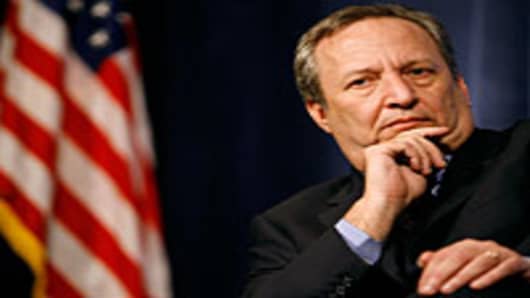The United States should not extend Bush-era tax cuts for the wealthiest Americans even as the so-called ‘fiscal cliff’ looms because it will perpetuate income inequality, says Larry Summers, former U.S. Treasury Secretary.
Instead, these revenues should go towards strengthening public education and ensuring that low-income students are presented with equal opportunities as their wealthy counterparts so that they can participate in the economy.
Tax breaks for the wealthy cannot continue to exist because it leads to a “perpetuation of privilege”, Summers said in the editorial in the Financial Times on Sunday. Unless steps were taken to “responsibly” increase the burden on those with high income and redistribute the proceeds, the trend toward inequality will continue, he said.
“There is no reason why the estate tax should decrease relative to the economy at a time when great fortunes are increasingly dominant,” Summers said. “Nor should tax-planning techniques that are de facto tax cuts only for those with millions of dollars of income and tens of millions in wealth continue to be legal.”
‘Fiscal cliff’ has become common nomenclature for the market bears, referring to the expiration at the end of 2012 of several tax cuts enacted under President George W. Bush, as well as mandatory spending cuts resulting from the debt ceiling fight last summer. Economists have told CNBC that the anticipation of the higher tax rates and reduced spending is already impacting the economy as there are signs that businesses are curbing spending.
Summers’ comments came after U.S. President Barack Obama called on Congress on Saturday to approve an extension of tax for most Americans, but not top earners. He said 98 percent of American families will not see their income taxes go up but the remaining two percent will have to pay a little more on anything they make over $250,000.
Tax issues have come to the fore as the Democrats and Republicans face off in an election year and disagree on how to extend tax breaks adopted by former president George W. Bush. While both parties want to extend tax breaks, Republicans argue that higher taxes for the rich, or “job creators”, would undercut the nation's fragile economic recovery.
Meanwhile, Obama has argued that if the tax cut is allowed to expire, it "would be a huge financial hit for middle-class families."
Summers thinks tax cuts for the rich should not continue and the proceeds should be used to pay for public education. The best institutions need to make sure they take in poor students who meet their standards and ensure “economic diversity”.
“While I support moves to make the tax system more progressive, the reality is that inequality is likely to remain high and continue to rise, even in the face of all that can responsibly be done to increase the burden on those with high income and redistribute the proceeds,” he said.
Summers was chief economic advisor to President Barack Obama and helped to engineer a $787 billion stimulus package immediately after Obama took office in January 2009. He also served in the U.S. Treasury Department from 1993 to 2001, becoming Treasury Secretary in 1999. He played a key role in the Clinton administration's effort to bail out Mexico and Russia from their currency crises in the 1990s.
- By CNBC's Jean Chua.


